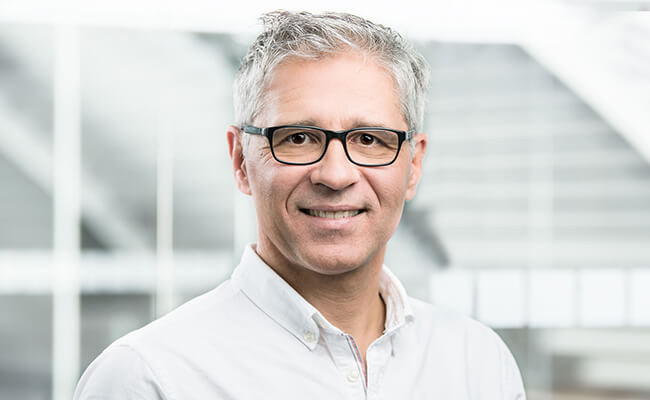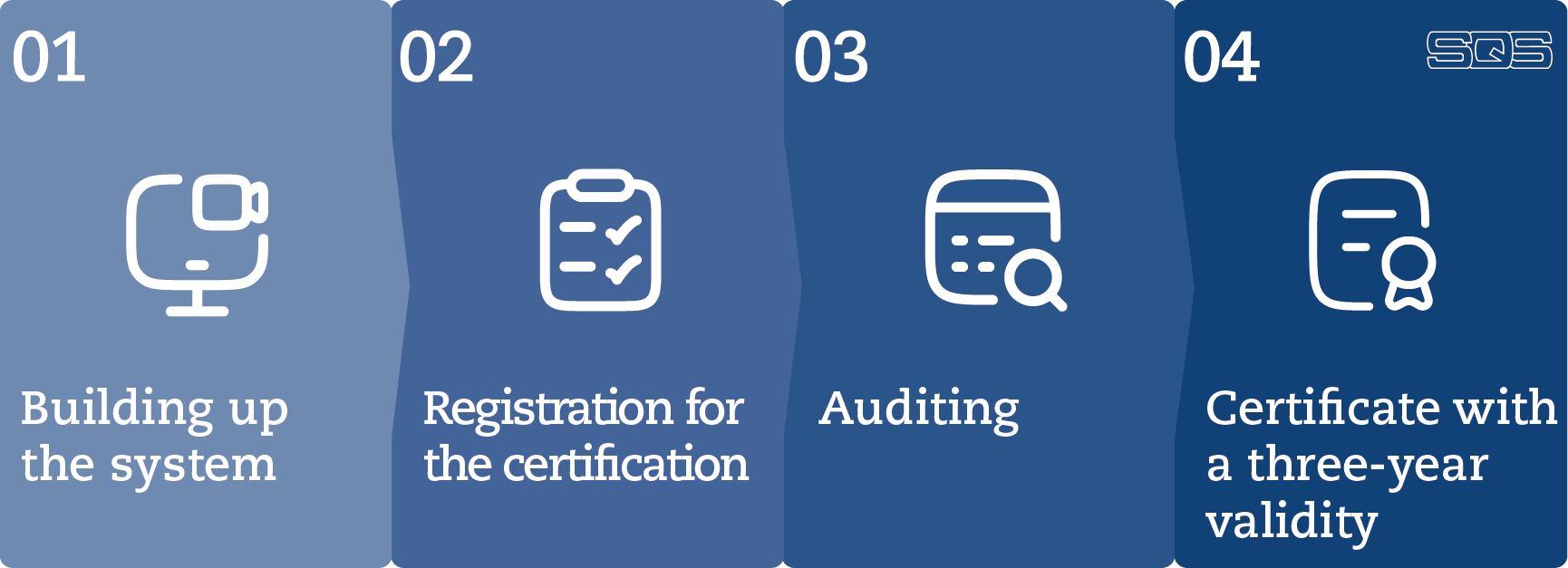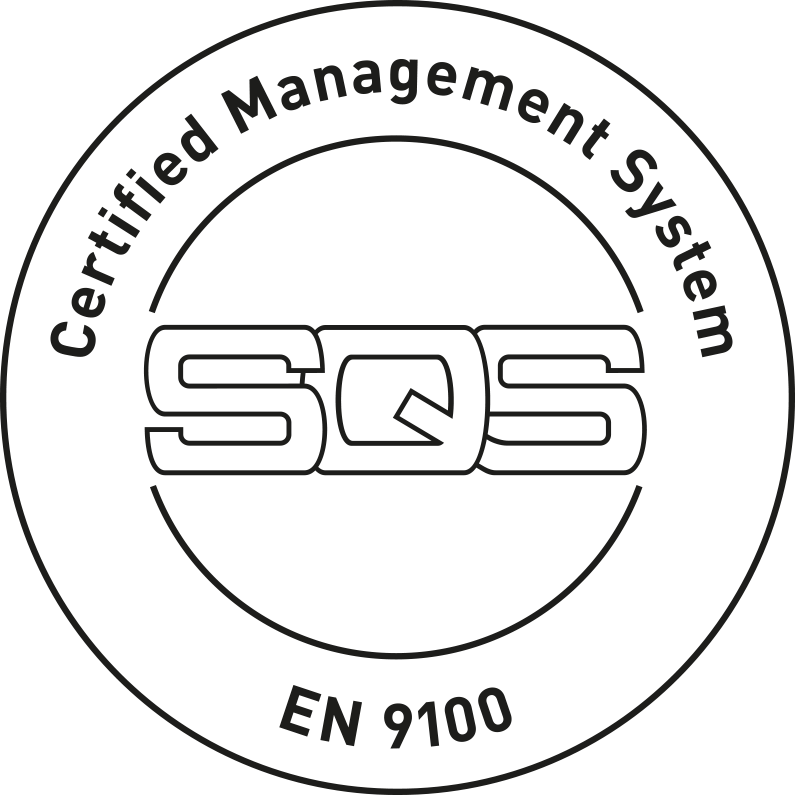EN 9100:2018 equivalent to AS 9100 D and JISQ 9100:2016 – Certification of Quality Management Systems - Requirements for Aviation, Space and Defence Organizations
The rapid change in technology in all sectors, the development of trends in society as well as the continuously increased globalization of the markets is still on going. In order to foster customer satisfaction and customer loyalty, a systematic and continuous knowledge management is assumed regarding the development of the business environment and its related needs as well as the expectations of the relevant stakeholders. Thus, an early detection of short and long term challenges will be supported in such a way that an enterprise could align its organization and processes and would be able to improve them in a performance oriented way. Risk oriented management helps to prioritize according actions in order to prevent hazards and to successfully make use of chances and opportunities in a timely manner. In this context, ensuring the availability and maintenance of skills and knowledge is an even more complex task, with which companies must deal in an increasing manner.
In the Aviation, Space and Defence industry applies specific core issues and associated requirements such as configuration management, operational risk management, project management, first article (EN 9102), key characteristics management (EN 9103), foreign object detection (FOD), counterfeits parts, safety management, Human Factors, external supplier management, On-Time Delivery (OTD), etc..
The standards EN 9100:2018 equivalent to AS 9100 D and JISQ 9100:2016 provide these and other topics with the requirements to be met by suppliers of Aviation, Space and Defence industries.

Accreditation by the Swiss Accreditation Service (SAS)

Recognised internationally for access to markets worldwide

We have been certifying management systems since 1983

Around 7 000 customers trust our Services
Quality management according to EN 9100
By establishing effective prevention-oriented practices and processes significant performance improvements in terms of quality, delivery and cost can be achieved for all products and services throughout the value chain - just by standardizing requirements, providing special processes and by the dissemination of best practices. Through early introduction of a quality culture in the value creation process, thus reducing the costs caused by a lack of quality is achieved.
By building and maintaining a dynamic cooperation between organisations of international aviation, aerospace and defence benefits and trust are created.
The certification according to EN 9100 is the prerequisite for registration as a supplier and is listed in the OASIS database. Through EN 9100 the prescribed use of validated process assurance measures, process control at its highest level, i.e. zero-error principle as well as cost reduction, is achieved.
Target groups of EN 9100
Organisations from the aviation, aerospace and defence industries.
Validity period of the certificate
3 years - for the purpose of continuous development a yearly upholding audit and after 3 years a recertification audit is conducted.
Recognition of the SQS certificate
The SQS certificate EN 9100 (Europe) is internationally recognized.
The standards EN 9100, AS 9100 (North and South America) and JISQ 9100 (Asia) are equivalent. Except for few details, the contents are identical. The regional division is determined by the three major regulated world sectors, which, however, are now largely harmonized.
Responsible for the product and there for you

Pascal Arnaudo
Do you have any questions about the standard or our service? Would you like to know more about the certification process and the costs? Or may we provide you with a concrete offer for the certification?
We are happy to help you. Our account management team and I, as the product manager, will be happy to forward your questions to our experienced auditors. We want to make it as easy as possible for you to access certified management systems.
Please let us know how we can support you. We look forward to hearing from you!
Kind regards
Pascal Arnaudo
Highest quality and process reliability
EN 9100 sets strict requirements for process control, risk assessment, and quality control. The «Zero-Defect Principle» and continuous improvement processes increase product reliability and minimize delivery failures along the entire value chain.
Recognition and market access
A quality management system certified to EN 9100 is often a mandatory requirement for contracts in the aerospace industry. Inclusion in the OASIS database gives companies visibility and increases their chances of winning new customers at home and abroad.
Clear and optimised processes
The systematic approach reduces sources of error, streamlines workflows and standardises processes. This leads to increased efficiency, lower quality costs and higher customer satisfaction.
If you feel fit for the standard, you are welcome to use the form above to register for certification. Otherwise, your path to EN 9100 certification could look like this:

#1 – Building up the system
Implement your management system in accordance with the requirements of the standard so that you are ready for your first external certification audit by SQS.
#2 – Registration for the certification
After registering for certification, you can benefit from a preliminary talk or pre-audit. The pre-audit identifies system-relevant gaps and enables efficient certification.
#3 – Auditing
We first review your system documentation, assess your readiness for certification and draw up a detailed audit plan together with you. Our auditors then visit your company to assess the relevant test objects and the maturity degree of the management system and compile a report.
#4 – Certificate with a three-year validity
If the report is positive, you receive the certificate in digital and printed form. You can communicate it internally and externally for three years. Annual audits ensure compliance with the standard and enable continuous improvements. A comprehensive recertification takes place after three years.
The duration depends on factors such as the size of the company, the complexity of the processes and the degree of preparation. Structured documentation, defined processes and clear responsibilities contribute to a smooth process and speed up the procedure.
An EN 9100 certificate is generally valid for three years. A surveillance audit takes place every year during this period. After the three-year period, a recertification audit must be carried out.
The costs vary depending on the size and complexity of the organisation. We would be happy to provide you with a customised offer.
No, our core competence is certification. However, if required, we will be happy to connect you with external experts or organise training courses so that you can optimally prepare for certification.
The certification body checks neutrally and independently whether your quality management system fulfils the requirements of EN 9100. If the assessment is positive, it issues the certificate and conducts the annual surveillance audits.
Each SQS certificate is given a unique registration number. This number can be used to check the validity via our online directory: To the query. EN 9100 certifications are also listed in the OASIS database. Interested customers or partners can easily verify the validity there.
If non-conformities are identified during the audit, the company is given a deadline to implement corrective measures. The certificate cannot be issued or extended if the non-conformities are not fully resolved.
Many norms and standards are based on the harmonised structure of ISO management systems, which enables seamless integration. This allows different systems to be managed together and reduces the administrative workload.
EN 9100 is based on ISO 9001 and contains additional requirements that are specifically tailored to the aerospace and defence industry - for example in the areas of risk management, configuration control or supplier control.
OASIS (Online Aerospace Supplier Information System) is a global platform where all EN 9100-certified companies are listed. This database allows potential customers and partners to view their certification. An entry strengthens your international visibility and gives you access to new markets.
A certification according to EN 9100 signals that a company fulfils the highest quality and safety standards and proactively manages risks. This increases the trust of customers, investors and regulatory authorities and provides a clear competitive advantage.
In addition to the general requirements for quality management (ISO 9001), EN 9100 integrates specific aspects of the aerospace and defence industry. These include, for example, configuration management, First Article Inspection (FAI), operational risk management in the project environment and special processes to prevent counterfeit parts. These branch-specific requirements are essential to guarantee the high safety and reliability standards in this sector.
In the aerospace industry, even the smallest foreign objects (FOD) or counterfeit or untested components can cause significant safety risks. EN 9100 therefore requires specific guidelines and processes to control and minimise such risks. Structured FOD and Counterfeit Parts Management not only improves product safety but also protects the image and liability of the companies involved.

